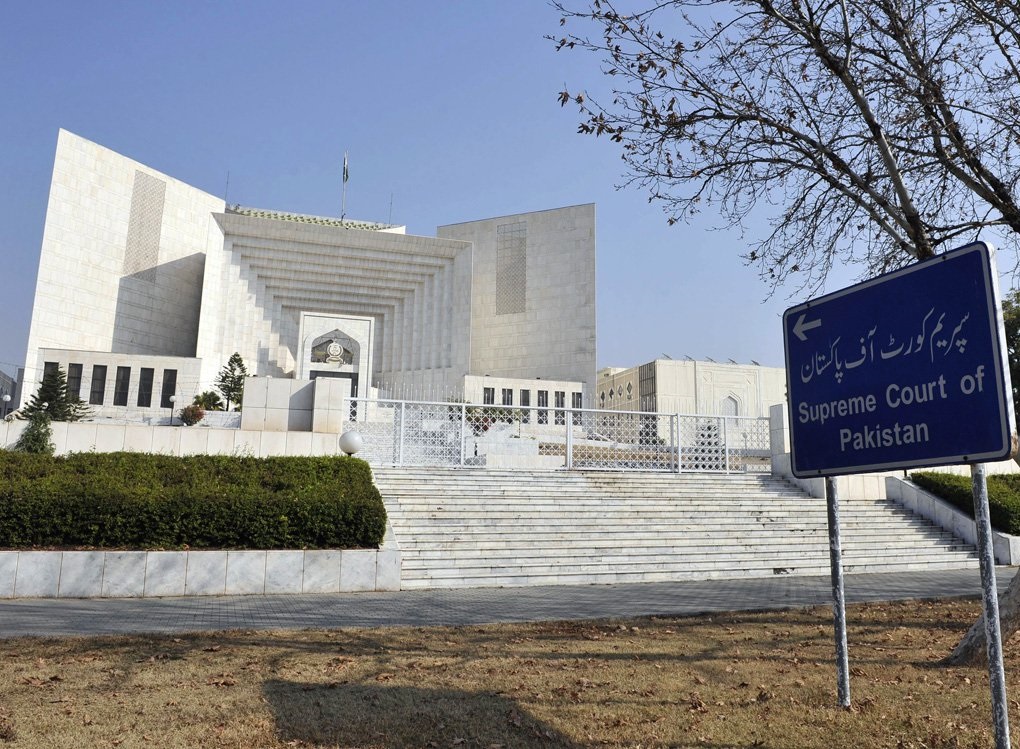
The top court has ruled that legal heirs of a civil servant can pursue his service matters – including matters related to pecuniary and pension benefits as well as reputation – after his death as such matters fall in the category of “survivable rights”.
"It is reiterated that other than pecuniary and pensionary benefits that are inure to the benefit of the legal heirs, the right to restore one’s reputation is also a survivable right and flows down to the legal heirs to pursue and take to its logical conclusion.
“Any slur on the reputation of a civil servant impinges on his human dignity and weighs equally on the dignity and honour of his family," said an eight-page verdict authored by Justice Syed Mansoor Ali Shah.
Justice Shah was part of a three-judge bench also including Justice Manzoor Ahmad Malik and Justice Amin-uddin which heard a case related to the right to sue following the death of a civil servant.
The judgment said the fundamental rights under the Constitution do not only protect and safeguard a citizen but extend beyond his life and protect and safeguard his survivable interests by being equally available to his legal heirs. The court said not all legal rights terminate on death.
A claim by a civil servant for his promotion or better terms and conditions or for reinstatement in service is a survivable claim and passes on in the shape of pecuniary and pension benefits to his legal heirs.
The court said such a claim may arise under the service laws but also enjoys constitutional underpinning.
Also read: SC defines its jurisdiction in service cases
“The right to employment and to earn a living free from undue molestation is a property right affecting the estate of the plaintiff,” it noted.
The court said such right does not abate upon death. Abatement of appeal on the death of a dead person would impinge upon the property rights of the respondents.
“Also, shutting eyes to their potential property rights would hurt their right to dignity. Human dignity is harmed when individuals and groups are marginalized, ignored, or devalued."
The court noted that under the constitutional scheme, abatement of proceedings on the death of a civil servant, in a case, where the cause of action carries a survivable interest will unduly deprive the dead civil servant and his legal heirs of their constitutional rights to livelihood, property, dignity and fair trial.
"Fundamental right to life including right to livelihood ensures the security of the terms and conditions of service; fundamental right to property ensures security of the pecuniary and pensionary benefits attached to the service; fundamental right to dignity ensures that the reputation of the civil servant is not sullied or discredited through wrongful dismissal, termination or reversion etc.
“[The] fundamental right to fair trial and due process, inter alia, safeguards and protects the survivable interest and ensures continuity of the legal proceedings even after the death of the civil servant, equipping the legal heirs to pursue the claim," it said.
The court said the objective behind establishing service tribunals was to take out the adjudication of disputes related to the terms and conditions of the service of civil servants from the hands of traditional civil courts and place it before specialized tribunals dealing with the issue without being hamstrung by intricate procedural rules of pleadings, trial, admissibility of the evidence and proof of fact.
"In addition to reducing the burden of regular civil courts, a very important purpose was to provide to the civil servants expeditious adjudication in respect of their grievances.
“Notwithstanding that the CPC [Code of Civil Procedure] is not as a whole strictly applicable to the proceedings before the tribunal, the tribunal is bound to follow the basic norms of justice.
“It has been observed by this court that the provisions of the CPC may not apply in proceedings under a special law yet its equitable principles will always be applicable in order to do complete justice between the parties and meet the ends of justice,” said the judgment.

















COMMENTS
Comments are moderated and generally will be posted if they are on-topic and not abusive.
For more information, please see our Comments FAQ